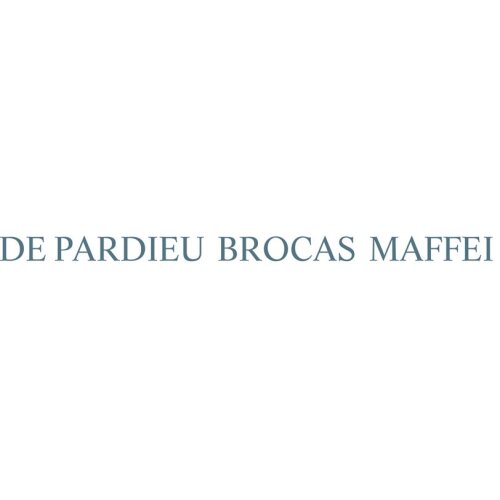Best Restructuring & Insolvency Lawyers in France
Share your needs with us, get contacted by law firms.
Free. Takes 2 min.
Or refine your search by selecting a city:
List of the best lawyers in France
About Restructuring & Insolvency Law in France
Restructuring and insolvency law in France deals with situations where companies or individuals face significant financial difficulties and cannot meet their obligations to creditors. The French legal system provides several mechanisms for companies to address financial distress, whether through out-of-court negotiations, judicial restructuring processes, or liquidation proceedings. The primary goal of these laws is to either help businesses restructure and continue their activities or to orderly settle debts and distribute assets among creditors if continuation is not feasible.
Why You May Need a Lawyer
Legal representation is crucial in restructuring and insolvency matters in France due to the complexity of the processes and the involvement of multiple stakeholders. Here are common circumstances when seeking legal assistance is strongly advisable:
- If your business is unable to pay its debts as they fall due
- If you are a creditor seeking to recover funds from a financially troubled company
- If you are considering reaching an agreement with your company's creditors
- If you are facing court-ordered insolvency proceedings
- If you need advice on protecting your personal assets or liabilities as a director or shareholder
- If you want to acquire assets from insolvent companies
- If you need to navigate the impacts of insolvency on contracts and employment relations
A lawyer will help with legal obligations, strategic negotiations, compliance with procedures, and communication with courts and official bodies to protect your interests.
Local Laws Overview
French restructuring and insolvency law is mainly governed by the French Commercial Code (Code de commerce). Here are the most relevant aspects:
- Pre-insolvency proceedings: Procedures such as mandat ad hoc and conciliation allow companies to negotiate debt rescheduling with creditors in a confidential setting, before any formal insolvency is declared.
- Safeguard procedure (sauvegarde): This court-supervised process provides protection from creditors while the business reorganizes its financial structure. It is designed for businesses that are not yet insolvent but are facing foreseeable difficulties.
- Judicial restructuring (redressement judiciaire): If a business is already insolvent, the court can open this process to attempt rescuing the company, preserving jobs, and settling debts.
- Liquidation (liquidation judiciaire): If recovery is impossible, the court will order the liquidation of the company's assets to repay creditors.
- Creditor ranking: French law sets out a strict priority list for how proceeds are distributed among creditors, with secured creditors and employees generally paid first.
- Director liability: Company directors can incur personal liability if they are found to have mismanaged the business or delayed filing for insolvency.
Frequently Asked Questions
What are the main insolvency procedures for businesses in France?
The main judicial procedures are the safeguard procedure (sauvegarde), judicial reorganization (redressement judiciaire), and liquidation (liquidation judiciaire). In addition, confidential pre-insolvency procedures such as mandat ad hoc and conciliation exist.
When is a business considered insolvent under French law?
A company is regarded as insolvent when it is unable to pay its due debts with its available assets, a situation known as cessation des paiements.
What is the safeguard procedure?
The safeguard procedure allows businesses not yet insolvent, but facing difficulties, to obtain court protection and restructure under judicial supervision, with the aim of continuing operations and preserving employment.
Can individuals (not just companies) declare insolvency in France?
Yes, individuals can also be subject to insolvency proceedings if they face overwhelming debt. The "over-indebtedness procedure" (procédure de surendettement) is managed by the Banque de France.
What is a creditors' committee?
In some proceedings, especially involving larger businesses, a creditors' committee may be established. This group represents various creditor classes and plays a role in approving or rejecting restructuring plans.
How are employees impacted in French insolvency proceedings?
Employees have priority claims for unpaid salaries and may benefit from guarantees from social insurance bodies. The preservation of employment is a major objective of restructuring procedures.
How long do insolvency proceedings usually last?
The duration varies greatly based on the complexity of the case, the size of the company, and the type of procedure. Some pre-insolvency processes can be resolved in a few weeks, while liquidation may take years.
Are directors personally liable for company debts?
Directors are typically not liable unless they have committed wrongful acts, such as mismanagement, fraud, or deliberately worsening the company’s financial situation.
Can I challenge a restructuring plan approved by the court?
In certain cases, interested parties can appeal restructuring plans if they believe their rights have not been properly considered or if legal procedures were not followed.
What happens to business contracts during insolvency?
Most contracts continue unless the court or insolvency representative decides otherwise. The law provides some flexibility for renegotiating or terminating unfavorable contracts during proceedings.
Additional Resources
If you need more information or direct assistance, consider these resources and institutions:
- Commercial Courts (Tribunal de commerce): These specialized courts oversee insolvency and restructuring proceedings for businesses.
- Banque de France: Assists individuals facing over-indebtedness and handles relevant procedures.
- French Ministry of Justice: Provides information and guidance on insolvency laws and procedures.
- Order of Attorneys (Barreau): Directory of qualified lawyers specializing in insolvency and restructuring throughout France.
- Statutory Auditors and Administrators: Court-appointed individuals who manage or assist with insolvency procedures.
Next Steps
If you believe you are facing a restructuring or insolvency situation, either as a business owner, creditor, or individual, consider these actions:
- Gather all relevant financial information and documentation, including debt lists, contracts, and recent financial statements.
- Contact a qualified French lawyer experienced in restructuring and insolvency. Many offer an initial consultation to review your situation and outline your options.
- Respond promptly to all communications from creditors, courts, or official bodies to protect your rights.
- Explore confidential pre-insolvency solutions if possible, to maximize the chances of a positive outcome.
- If you are a business leader, act quickly if you anticipate financial difficulties, as delays in taking appropriate legal action can increase personal liability.
A specialist lawyer will guide you through the process, safeguarding your interests and helping you navigate French insolvency law’s challenges and opportunities.
Lawzana helps you find the best lawyers and law firms in France through a curated and pre-screened list of qualified legal professionals. Our platform offers rankings and detailed profiles of attorneys and law firms, allowing you to compare based on practice areas, including Restructuring & Insolvency, experience, and client feedback.
Each profile includes a description of the firm's areas of practice, client reviews, team members and partners, year of establishment, spoken languages, office locations, contact information, social media presence, and any published articles or resources. Most firms on our platform speak English and are experienced in both local and international legal matters.
Get a quote from top-rated law firms in France — quickly, securely, and without unnecessary hassle.
Disclaimer:
The information provided on this page is for general informational purposes only and does not constitute legal advice. While we strive to ensure the accuracy and relevance of the content, legal information may change over time, and interpretations of the law can vary. You should always consult with a qualified legal professional for advice specific to your situation.
We disclaim all liability for actions taken or not taken based on the content of this page. If you believe any information is incorrect or outdated, please contact us, and we will review and update it where appropriate.
Browse restructuring & insolvency law firms by city in France
Refine your search by selecting a city.















